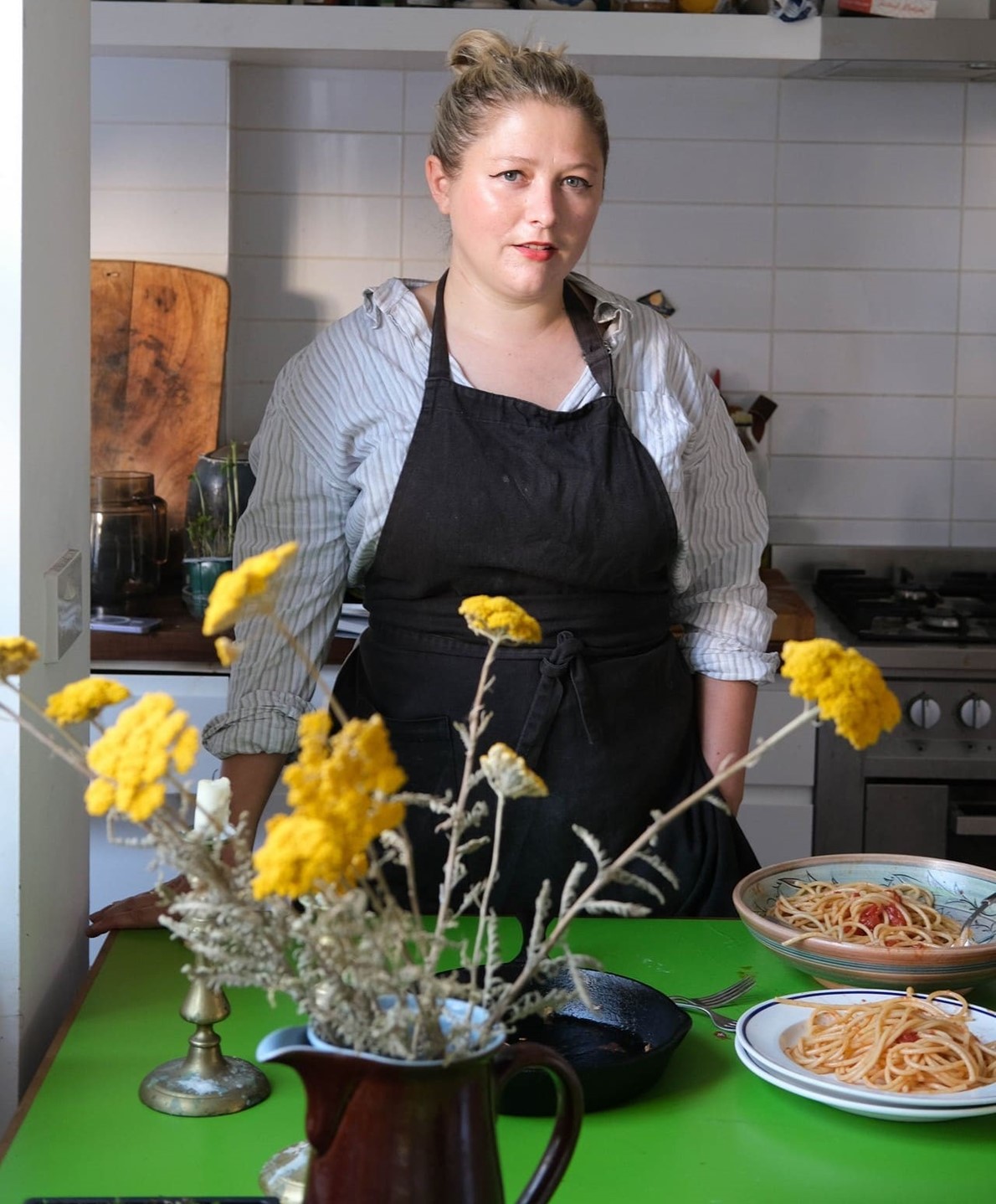What do we not talk about when we talk about cooking? When
you forward a recipe to a friend, do you mention the spatters of oil, the
physicality of wielding a pan, the nagging feeling that you do not want to
cook, or the clean satisfaction of tying an apron string?
اضافة اعلان
These ignored conversations inspired English writer and
academic Rebecca May Johnson’s first book, “Small Fires: An Epic in the
Kitchen,” which aims to upend not only the way we cook but the way we think
about cooking. The book regards recipes as sites of dynamic, creative
engagement across generations — and notes that most bragging about not
following a recipe are simply a defensive response to anxiety about
originality. “Small Fires”, is brave enough to hurt feelings and delicious
enough for no one to care.
Over a video call from her home kitchen in a coastal town in
Essex, Johnson made the playful yet provocative argument that we must “blow up
the kitchen”. For Johnson, it is a “childish but serious” phrase that reflects
her genuine interest in dismantling repressive structures as well as finding
greater pleasure in cooking.
These are edited excerpts from that conversation.
“Small Fires” includes many passages in which you do not
want to cook, or you can’t cook, you’re ordering in, you’re exhausted. This
feels unusual in a work about cooking, but very usual in the lives of many
cooks. Tell me about your decision to write these passages.

There is a shamefulness attached to nonproductivity. It was
a bit of a nervous moment thinking: “Oh, am I going to put this in the text,
that I have spent three days on the sofa and I’ve done nothing? I’m eating
frozen pizza.” But then I realized that this was valid. This was a valuable
part of the picture of cooking as well. It wasn’t planned ahead of time, it
wasn’t in my book proposal. I let reality into the book because cooking is an
alive and embodied thing. As I grew more confident in writing the book, I
became more confident in allowing my fatigue into the book rather than just
pretending everything’s fine all the time.
There’s a pressure on people writing food books — especially
women writing food books, and people of color writing food books — to perform
joy, to perform ceaseless energy, and to be pleasing at all times. You’re visually
pleasing, your body is visually pleasing, the food is visually pleasing, and
the text is visually pleasing. There’s nothing to disturb or distress. That’s
also something that holds back thinking about cooking from getting very
complex.
You write about this pride among people who avoid recipes.
What do you make of this posture, and the anxiety of originality?It is very understandable because there is a reverence
toward the notion of the original genius in our culture. If you have to
acknowledge that your work is also dependent on other people’s work, there’s a
vulnerability.
Just because your work is indebted to other people’s work
doesn’t mean that your contribution is not valuable. And I think that really is
the case with recipes. People feel like this recipe is oppressing me, this
recipe is taking away my agency. There’s a desire to be original, there’s a
dislike of sharing authorship, and there’s a refusal to sort of accept the
labor of others. That you’re always in dialogue with other people’s work is
something that people find challenging, including in the kitchen.
Why is it so rare for cooking to be recognized as a form of
intellectual engagement?There is a notion that what’s professional and serious is
located outside the home. Silvia Federici, the feminist thinker, talks about
how certain forms of labor, such as cooking, become framed as natural and a
form of love, so they’re almost done unthinkingly. Then often we internalize
those attitudes and fail to see our own thinking taking place.
Cooking itself is thinking. We do not have to sort of invent
it to be complex. It is complex. We’ve been taught to not regard our own
actions in that way. And so I tried, in the book, to slow down and perceive the
thinking that I was doing in the kitchen.
You seem to both agree with and argue with the conception of
cooking as a labor of love. Tell me how you grapple with that concept in your
book.
The labor of domestic work — including cooking and cleaning
— is characterized as love. The performance of love is also part of that work.
There is a pressure to do it lovingly, even if you’re depressed, even if you’re
exhausted, even if you are angry.
There are always forms of labor that we do not want to do.
But it is the work disguised as love which is an insidious element.
Read more Good Food
Jordan News





